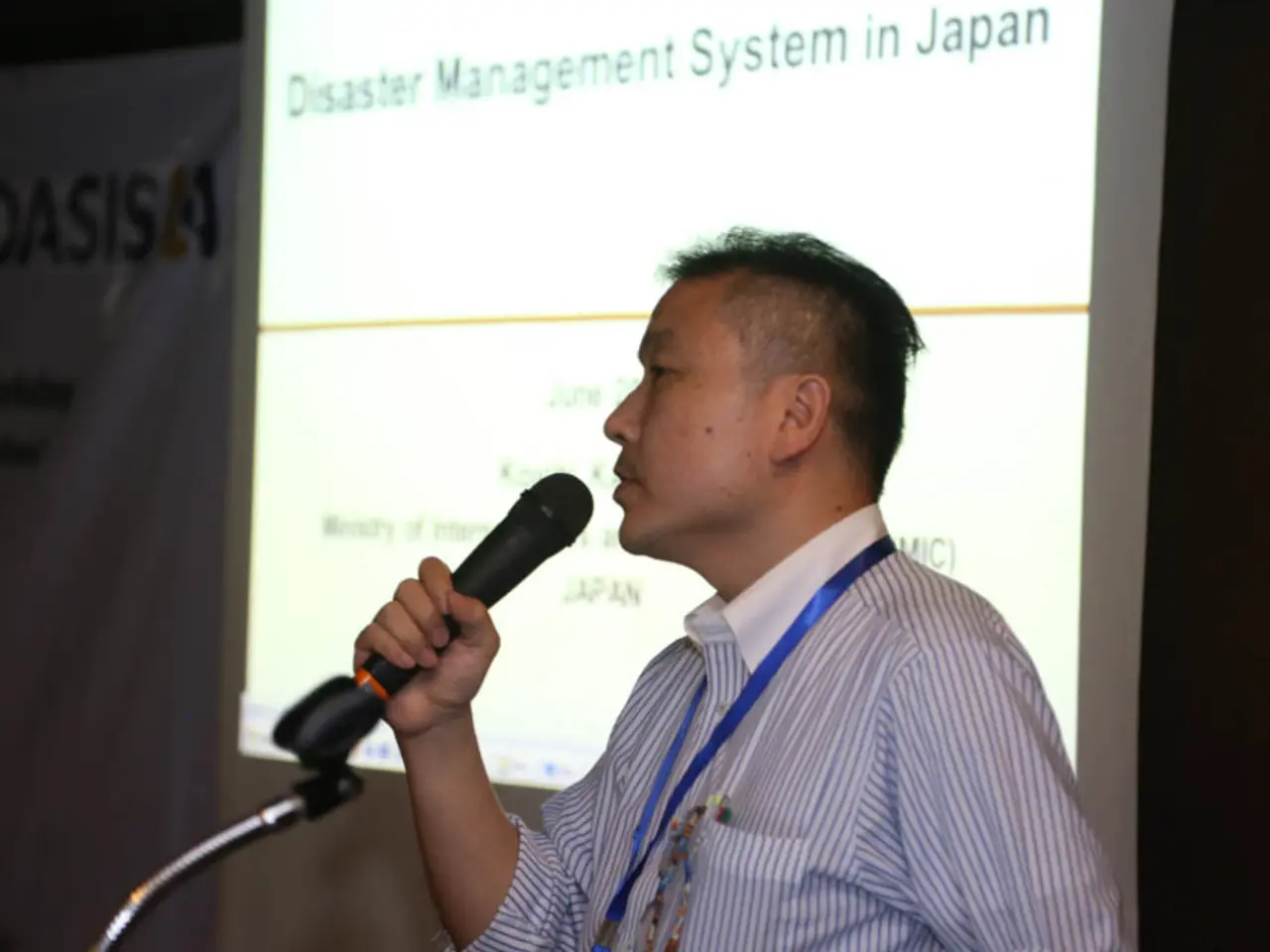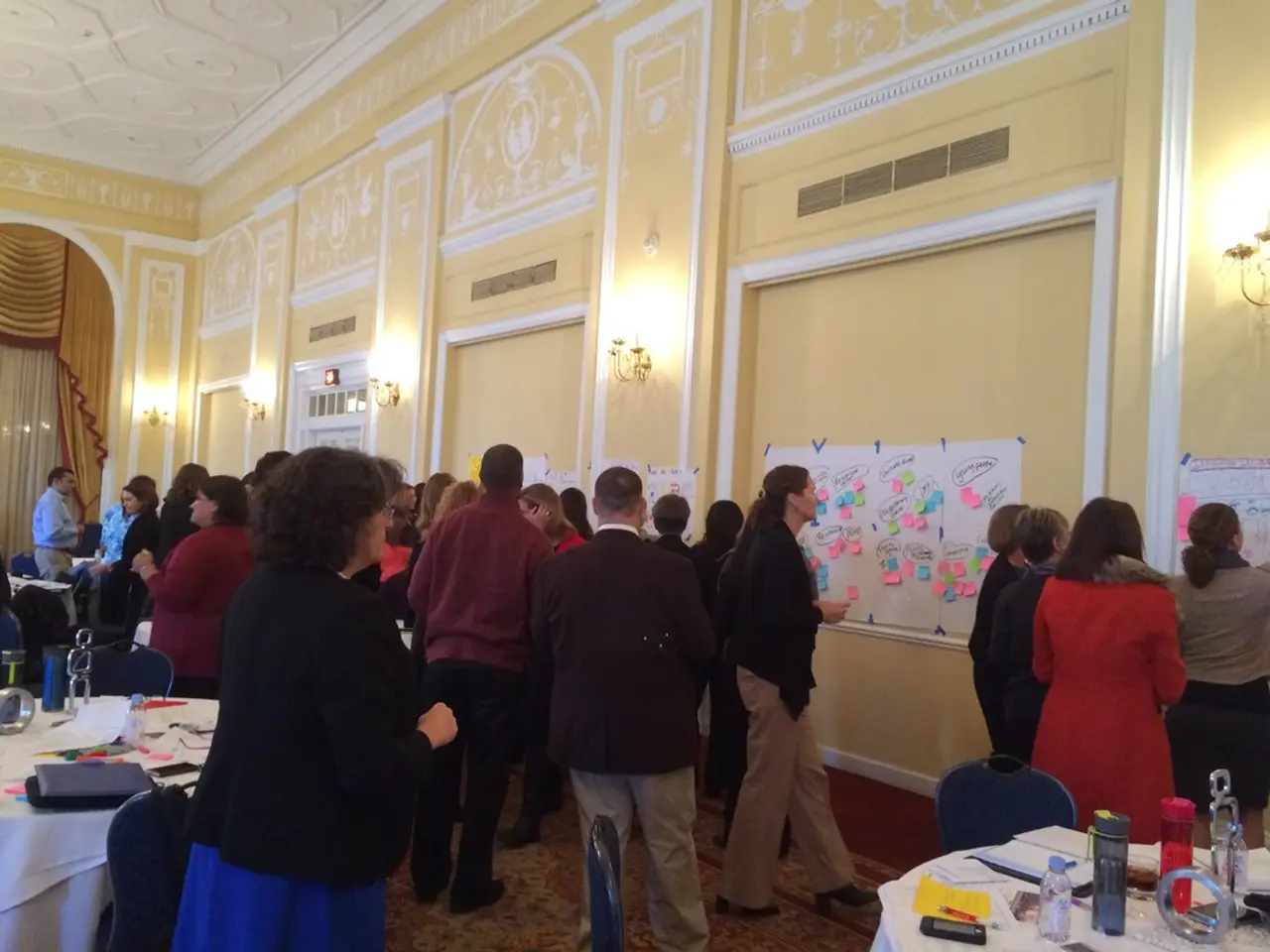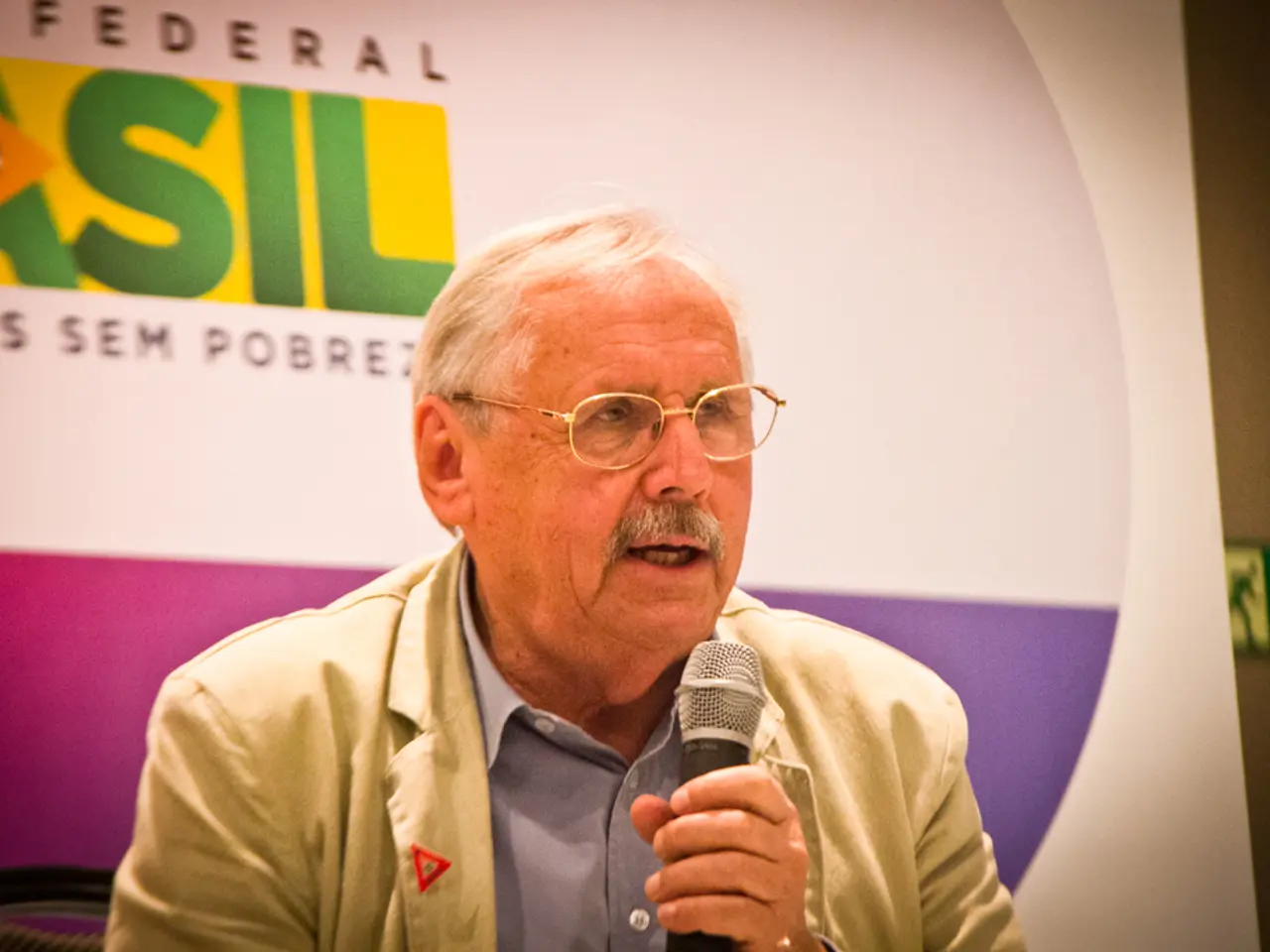Investor Frenzy Over Syria's Unexpected Economic Boom
Investor spirits soar following Trump's decision on Syria
Get ready for a fresh start in Syria's economy as investors jump at the chance to rebuild and recover amidst the country's historically fragile peace. The sudden lifting of U.S. sanctions against Syria has set off a gold rush, with wealthy Syrian expats and regional companies eager to capitalize on the potential boom.
"Syria's a treasure trove of opportunity," insists Syrian Finance Minister Yisr Barnieh, speaking to Reuters. He's alluring investors to seize this unparalleled moment. Syrian business tycoon Ghassan Aboud is an early adopter, already gearing up to make his mark on the damaged homeland.
"First off, I wanna help my country heal in every way I can," Aboud explains. "And secondly, the soil's fertile. Any seed you plant today could bring you a hefty harvest." He anticipates other Syrian business heavyweights with international connections joining his quest, no longer burdened by the fear of U.S. sanctions.
Lebanese billionaire Imad al-Khatib is putting his money where his mouth is, accelerating his investment plans for Syria ever since President Donald Trump's policy shift. He's dispatched a team to Damascus to lay the foundation for a $200 million waste sorting facility. "This is just the first move. More are coming," Khatib stresses. "Syria is just too big for Lebanon." According to Barnieh, potential investors from the United Arab Emirates, Kuwait, and Saudi Arabia are already expressing interest.
Turkish companies, like the BBVA bank, are hopeful for sizable contracts as well and are prepared to assist with reconstruction. "With the sanctions lifted, they can conduct business more efficiently, and Turkish banks can finance the endeavors," explains Onur Genc, CEO of BBVA, which oversees the second-largest Turkish business bank, Garanti BBVA. Although Turkey has supported the Syrian opposition in the fight against former ruler Bashar al-Assad over the years, they see potential for collaboration post-sanctions.
The devastation of Syria's economy after more than a decade of civil war is apparent, with the gross domestic product halved between 2010 and 2021, according to the World Bank, but the decline may be even more substantial. A new government led by Ahmed al-Scharaa, named state president following the collapse of the Assad regime, favors a free market approach and has prompted the European Union to partially lift its embargo against Syria.
Jihad Yazigi, publisher of a leading Syrian economic publication, regards the lifting of U.S. sanctions as a game-changer, offering a strong political signal and paving the way for Syria's reintegration into the Gulf states, international financial organizations, and the return of the Syrian diaspora. Despit the strides made, Syria still grapples with political instability and the need for economic recovery to ensure political stability.
Despite the ongoing challenges, the lifting of sanctions signifies an opportunity for a new economic chapter in Syria. While significant hurdles remain, the allure of rebuilding and the promise of returns cast a spell of excitement over Syrian and regional investors.
- In light of the lifted U.S. sanctions, the Syrian Employment Policy is set to attract a multitude of investors, as they capitalize on the country's economic recovery.
- Amidst the real-estate boom, regional companies and Syrian expats are pooling their resources to finance various projects, such as the $200 million waste sorting facility by Lebanese billionaire Imad al-Khatib.
- In the wake of the political shift, the Community Policy of Syria is increasingly focused on welcoming foreign investments, particularly from the United Arab Emirates, Kuwait, and Saudi Arabia in the realm of finance and real-estate, with Turkish companies also expressing interest in reconstruction contracts.




